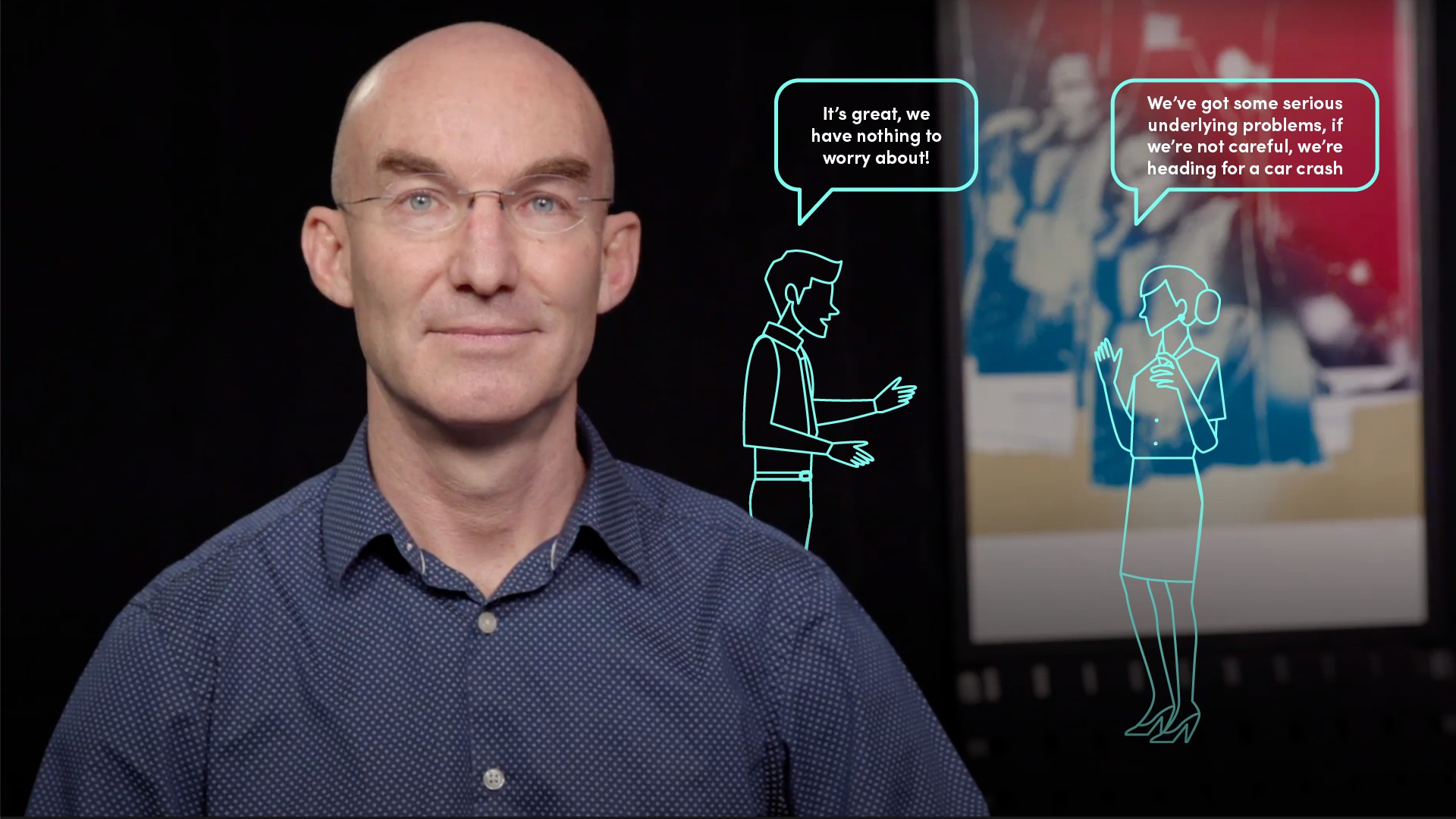
What is Culture and why is Culture Change Important?

Roger Noon
25 years: Behavoural science & culture
The intention of this series of 4 videos on “Culture Change in Practice” by Roger Noon is to present some different perspectives of organisational culture. The series is aimed at anybody involved in culture change – but in particular senior leaders – those who want to lead healthy cultures and those who are accountable for doing so.
The intention of this series of 4 videos on “Culture Change in Practice” by Roger Noon is to present some different perspectives of organisational culture. The series is aimed at anybody involved in culture change – but in particular senior leaders – those who want to lead healthy cultures and those who are accountable for doing so.
Subscribe to watch
Access this and all of the content on our platform by signing up for a 7-day free trial.

What is Culture and why is Culture Change Important?
12 mins 26 secs
There are a lot of methods and strategies that can help us understand and influence culture. For example, deep-dive diagnostics; behavioural analytics; the use of charters and values frameworks; internal and external survey tools; leadership coaching; mentoring; and role modelling.
Key learning objectives:
Understand why businesses invest in cultural strengthening
Define culture and understand how we influence it
Subscribe to watch
Access this and all of the content on our platform by signing up for a 7-day free trial.
What are some indicators of cultural strength?
- High levels of openness and transparency
- Excellent communication
- Great collaboration
- Genuine trust and respect between people
What is the benefit of good corporate strength?
- People enjoy their work
- Employees feel safe to express themselves
- Employees behave according to their values and feel committed to the organisation's purpose
Investing in well-being and inspiring people to show these qualities would obviously help performance. This is referred to as inner organisational health.
What are some examples of outer health?
- Client loyalty
- The ability to successfully market new products and services
- Regard for market ethics and corporate culture
- Having a strong corporate identity
So if inner health impacts outer health (and vice versa), then the case for focusing on developing a positive culture is unquestionable.
What is culture and how do we influence it?
Culture is aligned to and supporting our business objectives. It’s also important to understand that culture is socially constructed so it is - literally - created by the people who are in it.
Seeing culture as a complex system helps to explain why organisations find it so challenging to manage it. Relationships within these networks are not predictable, and you cannot understand them by breaking them down into individual bits. A good example of a complex system in our industry is the financial markets themselves. Characterised by their unpredictability, they are constantly in flux.
Organisational cultures defy our attempts to understand or engineer them and continue to evolve as a result of their contact with and adaptation to their environment. We need to think of culture as a complex system involving a massive number of interconnections and multiple dependencies, which lead to unpredictability and instability.
Subscribe to watch
Access this and all of the content on our platform by signing up for a 7-day free trial.

Roger Noon
There are no available videos from "Roger Noon"





























